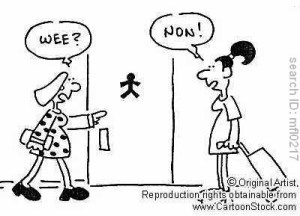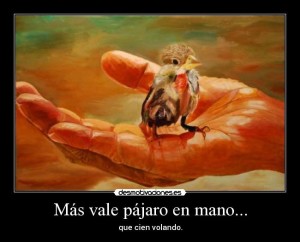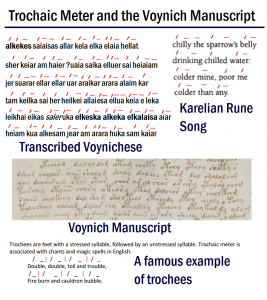 As non-native English speaking authors are enticed to the self-publishing industry, what are the challenges for writing a book in English, and how can authors enter the market successfully?
As non-native English speaking authors are enticed to the self-publishing industry, what are the challenges for writing a book in English, and how can authors enter the market successfully?
Recently, as an editor, I have noticed a real upturn in the number of non-native authors that ask me for editing services. Many tell me they have been turned away by other editors.
The thing is, because I have been an English teacher in Spain, I speak three languages, and have a qualification in English as a Foreign Language (EFL) it doesn’t scare me (maybe also growing up next to the mass of land called Europe, a smorgasbord of cultures and languages helps).
Yes, there are challenges. But they shouldn’t stop editors from getting their hands dirty and digging into a fresh, vibrant, and often interesting haul of storytelling that comes from a different cultural background. You may just learn something about your own language.
1. Cultural References

Ronnie Corbett (the little one) in BBC show “Extras”
When I fell about laughing seeing Ronnie Corbett in (Ricky Gervais’ hit show about working as an extra cast member in films) “Extras”, snorting cocaine he bought off his dealer, Moira Stewart, at the BBC’s gala awards in London, leaving Ricky Gervais’s character Andy banned from ever winning, my American husband had no idea why Moira Stewart and Ronnie Corbett were so hilarious in those roles, and more to the point who they were.
In case, like him, you have no idea, Ronnie Corbett is a loveable icon of family evening comedy in the UK who used to tell jokes from a rocking chair, and Moira Stewart is a serious, beloved newscaster of decades, the first African- Caribbean woman to read news on the BBC – and the most humorless figure possible – until that show came out).
The same thing happened to me in the US. I have no interest in watching The Larry Sanders Show because I have no idea what’s going on, or who the people are in it. I’m told it’s excellent – but I know nothing. It seems boring to me. When this happens in a book, it’s time to ask the author to think of how to explain the reference, and give some backstory. As you can see, it’s quite a challenge to explain things without making it long-winded.
2. False Friends 
A false friend is a word in another language that appears to be, or sounds like the same word in your language, but actually isn’t.
Here are some clangers:
EMBARAZADA – pregnant (Spanish) EMBARRASSED = avergonzada
DELITO – crime (Spanish) DELIGHT = delicia, deleite
BRAS – arm (French) BRAS = brassieres (plural)
BLESSE – blaze (German) BLESS = segnen, preisen
If I spot one of these, I do have to check that there is not more than one meaning for the word we need instead of the false friend, and ask the author which one we should use.
3. Colloquial Language and Sayings
Having stood in my kitchen in Spain only the other day trying to explain the saying “A bird in the hand is worth two in the bush” in Spanish to my neighbor, a fisherman who has never been north of the Sierra Nevada in his life, I can say with all certainty that literal translation of sayings and colloquialisms are going to be a fail in most books.
In Spanish the saying is different, “Más vale pájaro en mano que cien volando” – “More valuable a bird in hand than one hundred in flight.” No bushes. Probably because there aren’t many bushes around here.
Therefore, literal translations of sayings are going to lose something, and if as an editor I come across a strange sentence, I always check back with the writer to see if it is indeed a saying or colloquialism.
I keep several huge tomes of colloquial language at my side, and they are turning into a good investment as Amazon’s ebook writers attempt the English market.
4. Moral Systems And Humor
Recently, a non-native English author told a story about killing a dog. In his book, which was a non-fiction piece, he tells how he thought it was humorous when his friend is upset about it. Of course, this will kill a book dead in English-speaking countries. But in his culture, it was basically normal. Explaining this to the author was difficult, and felt like a lecture on animal cruelty to a child.
But it was necessary to explain the culture he was entering with his book was never going to accept this story without hating his guts for the rest of the book. Sometimes an author will gaily write about a subject in detail, completely forgetting their new audience has no idea what the heck is going on.
One Indian author was sunnily describing her village’s custom of burying disabled kids on an eclipse to cure them of disability as if it was funny. Weird, yes. Psychopathic? Perhaps. But not funny.
When this happens, it’s best the author is advised to put up another layer between their experiences and the reader – perhaps some hindsight, or information about their own culture to help readers in the English-speaking world relate to the harsher times of other parts of the world.
 5. Traditions of Storytelling and Meter
5. Traditions of Storytelling and Meter
Not all storytelling follows the scenario – conflict – resolution three-act formula most English books use, and often have a different rhythm, or meter.
African storytelling may include a more spiritual and fluid way of describing, due to oral, communal storytelling techniques embedded in the cultures. This may mean prose can seem rambling and waxing lyrical. It’s up to a skilled editor to retain this characteristic without confusing the reader in English.
In Finland, stories are epic, and have a different rhythm to them, called the “Kalevala metre.” This is a singy-songy syllable use, and it’s important not to lose this in translation or editing. For English-speakers, two of the best-known examples are Henry Wadsworth Longfellow‘s The Song of Hiawatha and the Finnish Kalevala. Also known as Trochaic tetrameter, because English is so iambic in rhythm, that is, an unstressed syllable followed by a stressed syllable, it’s careful work choosing what to edit or change in epic, Scandinavian prose or poetry.
6. Sentence Construction
Sentence construction is very different in many languages, so sometimes we can lose subtle yet important meaning when a book has been translated.
For instance, “The house of my mother” is much more poetic than “My mum’s house” or “my mother’s home” – and yet if the Spanish “La case de mi madre” was badly translated, you could end up with just that; the same with French, “La maison de ma mère” – maison can mean “home” or “house”. In these situations, I give authors a choice. I tell them the differences and let them choose the tenor of the sentence. Maybe they will want a casual-sounding sentence, but other times a loftier edge.
7. Political Correctness – Lost In Translation
An author used the word “Jews” throughout her book when discussing the pros and cons of various religions. Maybe in certain countries this is OK, and in fact some Jewish communities say they have reclaimed the word (Jews For Jesus, for example), but something is lost in translation here when the word “Jew” is still used as a derogatory term, and again, this had to be explained gently (excuse the pun) to avoid offense, replacing the word with “Jewish people”. Maybe this would have not been such an issue in a fiction book, but as the book was also a critique of Judaism, it seemed incredibly necessary to make the change.
The same thing happened with the word “Negro”. In Spanish, the color black is “negro.” I found myself in a busy cafe with a Spanish author — a woman who by the way works with a man from Nouadhibou — insisting loudly, “But they (I cringed) are called “Negro”! Ask him! Ask him!” (pointing to her African partner, who was nodding furiously)…Lost in translation is a very delicate thing, and sometimes words mean very different things in another language, despite their literal meaning.
This is obviously more of an issue in non-fiction, but it’s also something that has to be considered in fiction writing. Sometimes your character will need to be a racist, sexist, narrow-minded personality, but if you are actually seeking empathy and to have your readers fall in love with your character, it’s to be considered seriously.
 Here are some notes on translating your book, if you are considering it.
Here are some notes on translating your book, if you are considering it.
Translating from English to another language
A word of warning should be leveled here to all English-speaking authors. Translating your book into any language from your own may seem like a nice way of getting your book “out there”, and some “self-publishing experts” have even encouraged writers to do this by rote.
As marketing professionals at SPR, with an extra opinion sought from two of our partners, we strongly advise the following:
1. If your book is in English, translate to a sensible next language such as Spanish or French.
2. The cost of translating a book is around $5000 up – anything less might indicate amateurs. Use an affiliated and well-known translator, whose native language is the language you want your book to be in, not the other way around. Make sure you get a sample, and test it on a native audience before you continue (You can do this for free by asking people on language forums such as http://forum.wordreference.com/ or http://linguaholic.com/.
3. Don’t even bother with this process unless you have sold many (thousands of) books in English and you have a nice following – your book will not sell any faster in any other language compared to English, which is the fastest-selling language on Amazon. For example, only 17% of all Spanish speakers have Internet at home, and Amazon.es is in its infancy, only 4 years in. You may be the exception and sell books, but it’s doubtful the investment of money, time, and energy will pay off.

Hemingway opened doors to Spain for US readers – but his writing on bullfighting isn’t considered very accurate
4. Remember most people read books in English in other countries. Outside of the US, people can speak more than one language from school years, and grow up watching films in English. It isn’t necessarily worth a translation.
5. Remember you have no way of knowing if your book will read natively until you release it. See point 2.
6. You should consider translating a book into another language if there is a demand for it, such as a biography of a Swedish figure might do well in Swedish, whereas a book on bullfighting might do well in Spanish. But beware: are you a foreigner giving advice to locals about their own culture? If so, steer clear.
Ernest Hemingway’s writing on bullfighting is generally considered made-up tripe (he didn’t attend some of the fights he wrote about): the reason he is regaled by the Spanish is the fact he opened international doors onto Spain at a time when it was a closed community due to dictatorship. Maybe that biography is better written by a native Swede, unless you happen to be highly qualified in some unique way.
Translating from another language to English
1. Translate to English using an affiliated translator, who is native English. Never attempt to use someone who is from your own country, because it will never be native.
2. The cost varies, but should be around $5000 or the relative amount in your country. Beware of lower costs on sites like Fiverr.
3. Consider your title and blurb for a professional translation as well. Maybe your title would be better as something else in English.
4. You have a unique point of view compared to most English-speakers. It may be worth translating your book for all the reasons mentioned in this article!
Get an Editorial Review | Get Amazon Sales & Reviews | Get Edited | Publish Your Book | Enter the SPR Book Awards | Other Marketing Services






















I have spent years in an editing office checking and proofreading deliveries by external translating agencies and, therefore, I am not entirely convinced by your item, “1. Translate to English using an affiliated translator, who is native English. Never attempt to use someone who is from your own country.” I understand that this position is very popular especially with native English translators who desire to keep unwanted competition from abroad at bay, but in my experience, such translators often fail to recognise the subtleties of the text in the source language, be it in matters of idiomatic expressions, of socio-cultural references (like in the examples you have given above), (convoluted) syntax, details of grammar or simply technical terms: I have actually seen a British translator inventing the “data coach” in an attempt to translate “databus” from German. I am inclined to think that the ideal solution was to have a native speaker of the source language doing the translation and a native speaker of the target language proofreading the results. But of course, that means you have to pay two guys for the job, that’s why it is so rarely done.
An interesting idea but much more costly when there are plenty of bi-native translators available – for instance, someone with one Spanish parent and one English parent. I have had many experiences with authors who get a non-native speaker from the source country who translated the book so awfully that I have to proofread it in such an intense way it takes me six times as long to unravel sentences as an editor to save the book, so I don’t agree. I always advise authors hire a professional in any case with references and affiliations.